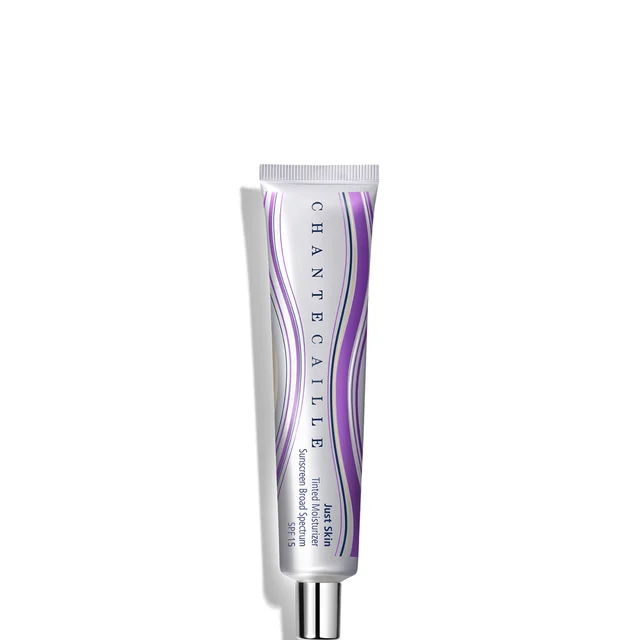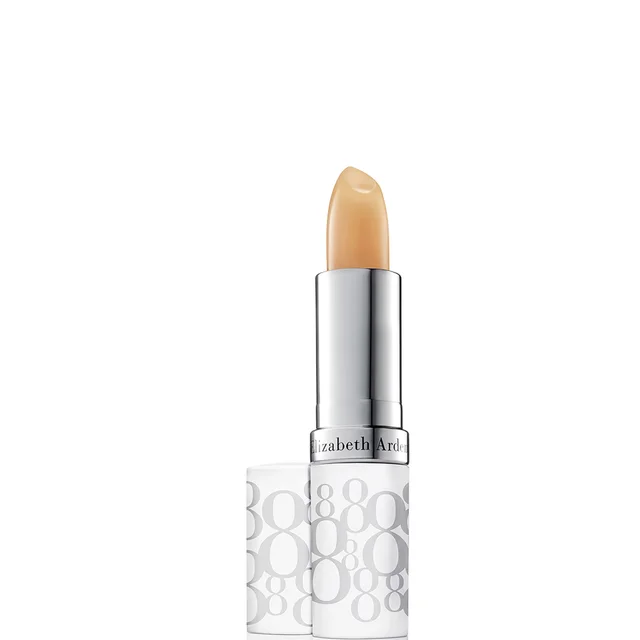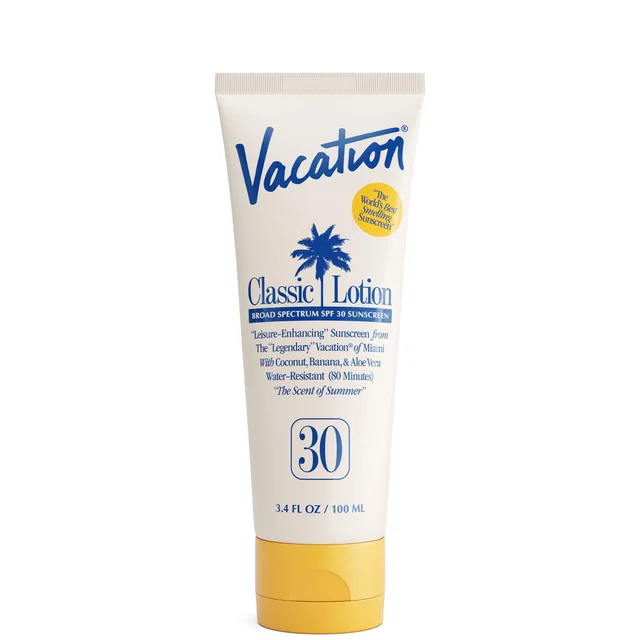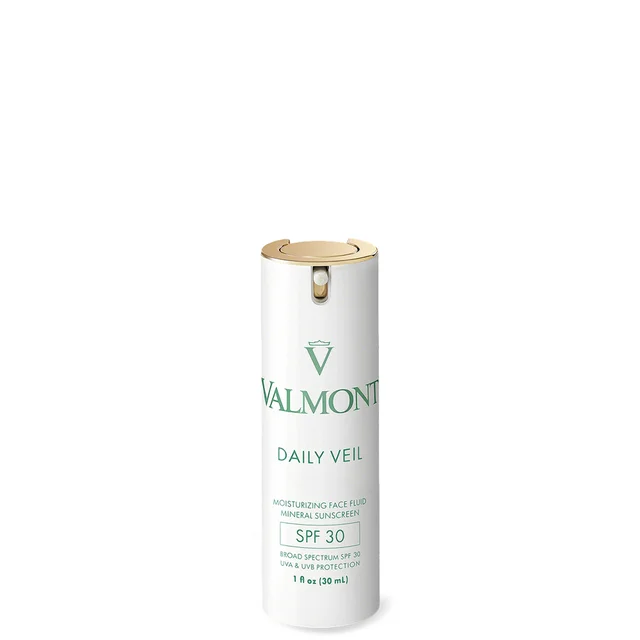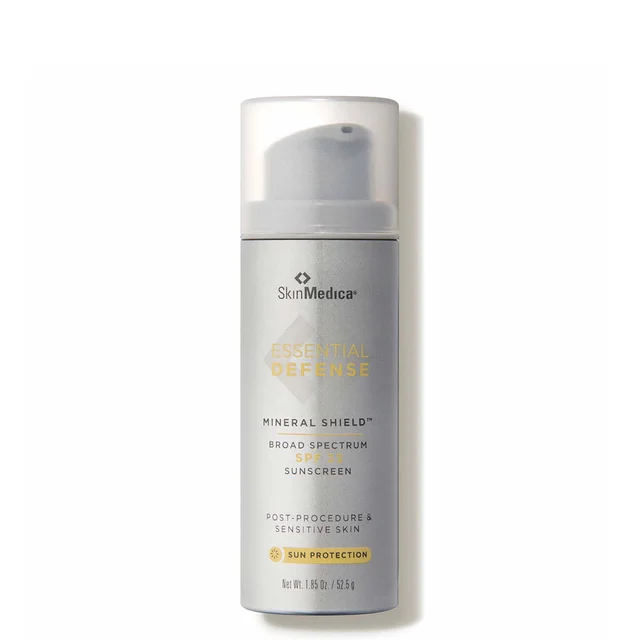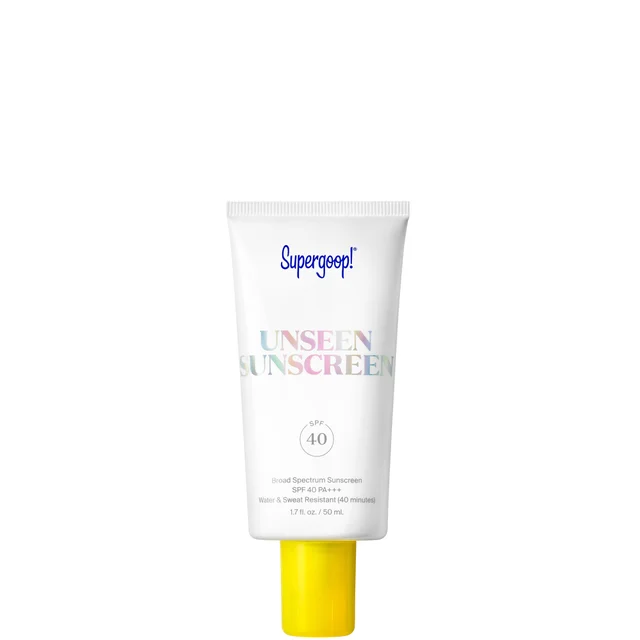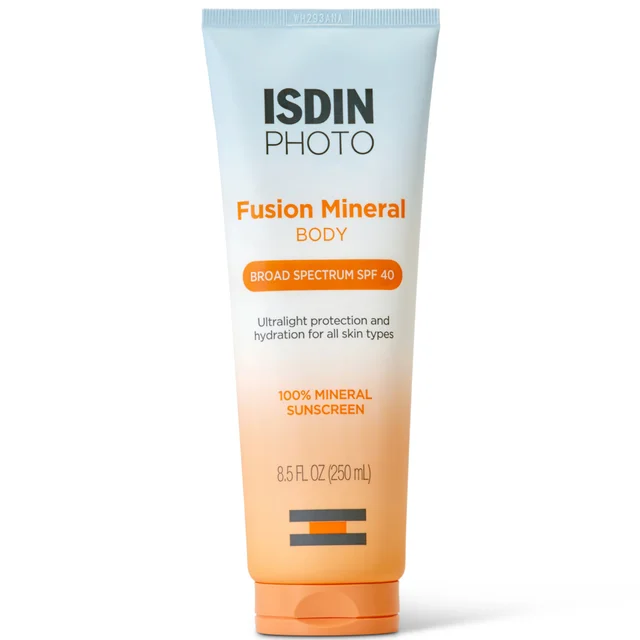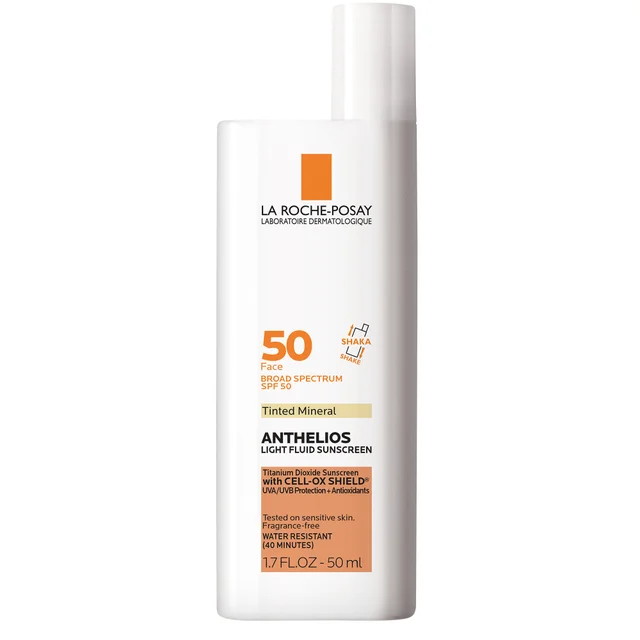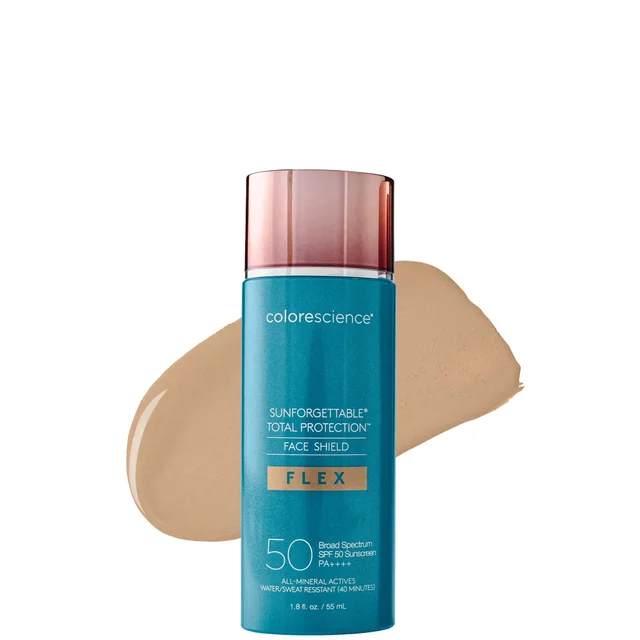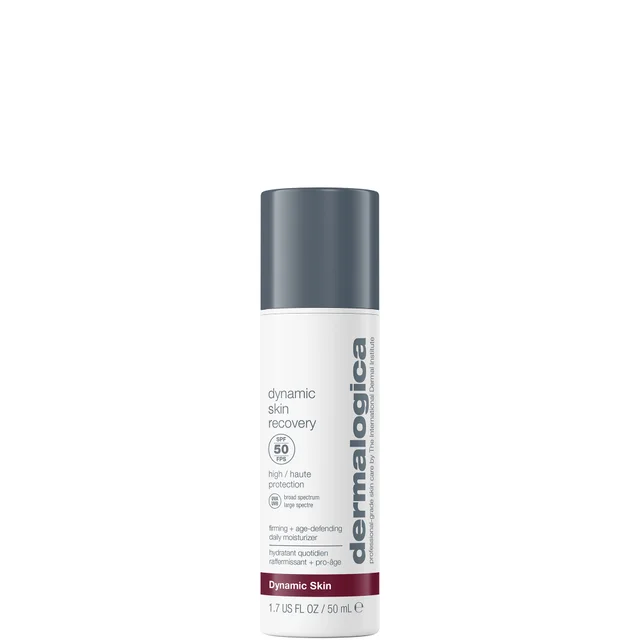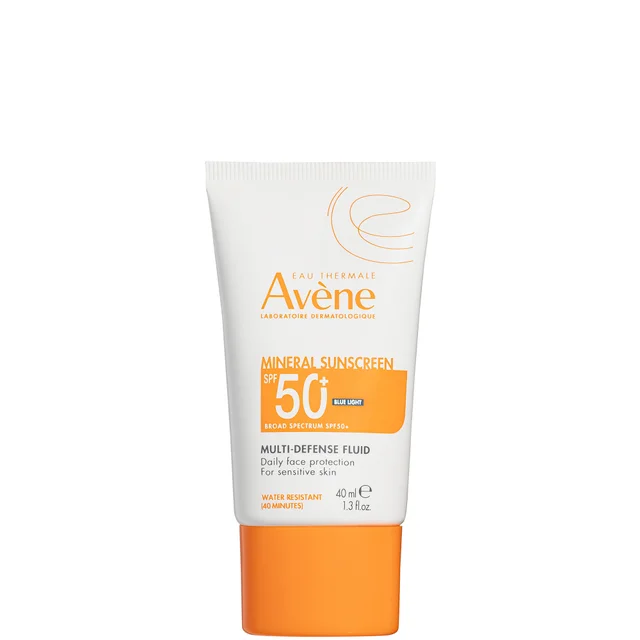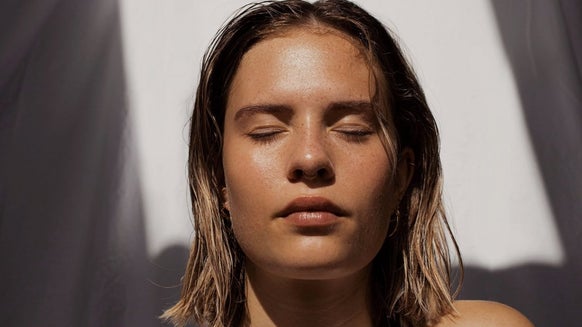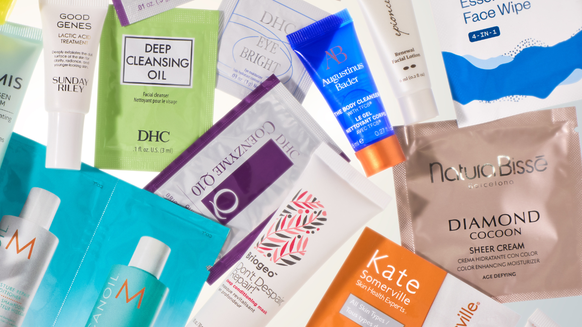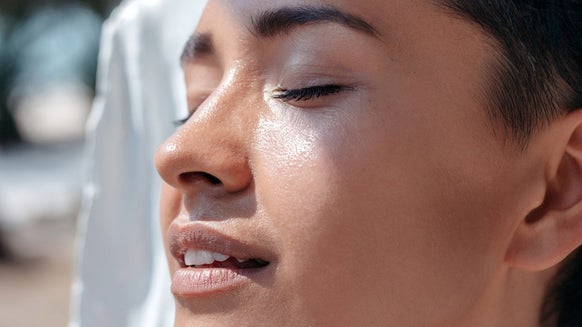The 19 Best SPF Sunscreens to Protect Your Skin in 2025
Sunscreen is a skin care non-negotiable, and there is no reason to stress over the importance of sun protection. Considering that photoaging (UV-induced damage) to the skin is responsible for up to 90 percent of the visible changes to the complexion, according to the Skin Cancer Foundation, it makes perfect sense why it is critical to wear sunscreen every day. Overexposing the skin to the sun leads to free radical and UV damage, causing many skin concerns such as pigment changes, discoloration, redness, inflammation, loss of elasticity, uneven tone and texture, and, worst of all, skin cancer.
Fortunately, skincare and sunscreen protection innovations now allow for the best SPF sunscreens to come in all shapes, sizes, and formulations without the ick, grease, and white cast that made SPF get a bad rap. Wondering which sunscreen is right for you? We've got you covered. Below is a roundup of our favorite sun protection formulas so that you can choose the best SPF sunscreen for your face and body.
What is SPF in Sunscreen?
Sun protection factor (SPF) is a way to measure just how effective a sunscreen protects the skin from harsh, damaging UV rays. The number equated with SPF on a bottle of sunscreen indicates how much protection the skin receives from sunscreen versus wearing nothing on it. For example, SPF 30 gives the skin 30 times more protection than unprotected skin without sunscreen. The Skin Cancer Foundation recommends using a minimum of SPF 30 outdoors and SPF 50 or higher if you have a higher risk of skin cancer or genetic conditions. Higher SPFs are safest when engaging in high-altitude activities like hiking, skiing, and traveling near the equator.
How Do You Choose the Right SPF Sunscreen?
Choosing the best SPF sunscreen for your skin and its needs is akin to selecting the right skincare products. Many personal decisions go into choosing the right SPF sunscreen, and while it may seem a little overwhelming, it shouldn't be.
For starters, decide what SPF is best for you. If you are looking for an everyday sunscreen and the amount of sun exposure you get daily is minimal, a sunscreen with an SPF of 30 should suffice. For days when more protection is necessary, you can bump up the SPF to a higher number. You'll also want to make sure that the sunscreen you choose is labeled as broad spectrum so that it is equipped to protect against UVA and UVB rays. From there, determine if you want a physical or chemical sunscreen and which formulation is most suitable for your skin and its type. Sensitive skin types usually prefer physical formulas with zinc oxide or titanium dioxide, which are less likely to cause reactions. On the other hand, you may lean more towards a chemical sunscreen if you don't want a white residue on the skin. Finally, choose the sunscreen format that works best for you. There are plenty to choose from, including lotions, creams, powders, tinted versions, sticks, and sprays.
Shop the Best SPF Sunscreens
Best Sunscreens with SPF 5 to 15
Eminence Organic Skin Care Rosehip Lemongrass Lip Balm SPF 15
Perfect for protecting the delicate skin on the lips from the sun while infusing it with moisture, this nourishing lip balm also leaves behind an uplifting citrus aroma for a complete sensorial experience.
Active Ingredients: Rosehip oil, comfrey, organic extra virgin olive oil, lavender, zinc oxide
SPF: 15
Type: Mineral
Soleil Toujours Mineral Ally Hydra Lip Masque SPF 15
The sun is a known aggressor for speeding up the rate of aging lips, but swiping on this hydrating, SPF-paced, anti-aging lip treatment can help keep them youthful and plum. By delivering moisture to the lips and protecting and stimulating collagen production, the lips emerge healthier, softer, and with more natural volume.
Active Ingredients: Peptides
SPF: 15
Type: Mineral
Chantecaille Just Skin Tinted Moisturiser Sunscreen Broad Spectrum SPF 15
Some days, you need a little bit more coverage than others, and that's why having a good tinted moisturizer with sunscreen on hand is a must. This one is super hydrating and contains botanical ingredients for sun protection, skincare, and makeup in one.
Active Ingredients: Titanium dioxide, botanical extracts
SPF: 15
Type: Mineral
jane iredale Dream Tint Tinted Moisturizer SPF 15
Packed with SPF 15, this water-resistant tinted moisturizer hydrates, protects, and smooths the skin while covering up imperfections, blemishes, and stubborn discoloration. We like that the buildable formula gives a sheer to medium coverage while working overtime to prevent water loss while calming the skin.
Active Ingredients: Algae extract, minerals, antioxidants, titanium dioxide
SPF: 15
Type: Mineral
Elizabeth Arden Eight Hour Cream Skin Protectant Stick SPF15
This cult-classic skin-protecting formula safeguards the lips and anywhere else on the face that you wish to protect from the sun. The super-nourishing formula contains emollients and vitamin E to shield the skin from environmental aggressors while lending a moisturizing and soothing effect.
Active Ingredients: Vitamin E
SPF: 15
Type: Mineral
Best Sunscreens with SPF 16 to 30
PCA SKIN Hydrator Plus Broad Spectrum SPF 30
Dry skin doesn't stand a chance against this intensely hydrating sunscreen cream. Chock full of antioxidant-rich caffeine to protect the skin from sun and free radical damage, this sunscreen cream is like a daily moisturizer with added benefits.
Active Ingredients: Zinc oxide, caffeine, octisalate, octocrylene
SPF: 30
Type: Mineral and physical
iS Clinical Extreme Protect SPF 30
This hydrating sunscreen, rich in vitamin E and aloe, benefits all skin types. Besides safeguarding against UV damage, the formula also repairs the skin during sun exposure and promotes increased elasticity to improve the look of lines and wrinkles while smoothing and nourishing the skin.
Active Ingredients: Aloe, vitamin E, olive leaf extract, gotu kola extract, zinc oxide
SPF: 30
Type: Physical
Vacation Classic Lotion SPF 30
For days spent poolside, this clean, lightweight, but strong-acting sunscreen is the one to reach for. Offering SPF 30 and a handful of active ingredients, plus the brand's signature sunscreen scent, the water-resistant lotion transforms into a transparent application undetectable on all skin tones.
Active Ingredients: Coconut oil, aloe vera, banana extract, niacinamide, vitamin E, avobenzone, homosalate, octisalate, octocrylene
SPF: 30
Type: Mineral
Valmont Daily Veil SPF30
Protecting your skin daily from UVA and UVB rays is key to maintaining its health and integrity. Layer on this serum-like sunscreen and wear it on its own or on top of your favorite cream to round out your anti-aging routine while protecting your skin.
Active Ingredients: Zinc oxide, carnosine derivative, silicum D2 complex, liposome RNA, urea, squalane, argan oil
SPF: 30
Type: Physical
Best Sunscreens with SPF 31 to 49
SkinMedica Essential Defense Mineral Shield Broad-Spectrum SPF 35
One of the most important ways to care for post-procedure skin is by protecting it with a broad-spectrum sunscreen like this one. The sheer, lightweight formula protects against UVA and UVB rays while helping reduce redness and discoloration thanks to caffeine and green tea extracts.
Active Ingredients: Green tea extract, caffeine, titanium dioxide, zinc oxide
SPF: 35
Type: Mineral
Perricone MD Hypoallergenic Clean Correction Ultra-Lightweight Calming SPF 35 Veil
The National Psoriasis Foundation recognizes this gentle sunscreen, which helps reduce photodamage without a greasy feel. Safe for even the most sensitive skin types, the non-comedogenic formula helps lock in long-lasting moisture while giving a brightening effect.
Active Ingredients: Calendula extract, bisabolol, minerals
SPF: 35
Type: Mineral
EltaMD UV Lotion Broad-Spectrum SPF 35
When you find a non-irritating sunscreen that you can use head to toe, it becomes a keeper, and that's exactly what this formula is. It's super moisturizing, so it won't dry out the skin. Use it on your face, chest, arms, legs, and beyond to stay fully protected from the sun.
Active Ingredients: Zinc oxide, octinoxate, hyaluronic acid, vitamin E
SPF: 35
Type: Physical
Supergoop! Unseen Sunscreen SPF 40
This award-winning, weightless, oil-free sunscreen works hard to protect the skin from the sun's damaging rays while leaving it with a soft, velvety finish. Perfect for all skin types and tones, the colorless formula doubles as a super gripping makeup primer and blue light defender, making this sunscreen a does-it-all product no one should be without.
Active Ingredients: Red algae, frankincense, meadowfoam seed, avobenzone, homosalate, octisalate, octocrylene
SPF: 40
Type: Mineral
ISDIN Fusion Mineral Broad-Spectrum Body Sunscreen SPF 40
Rivaling hydration in body lotions, this mineral-based sunscreen helps moisturize the skin while protecting against unnecessary ultraviolet and pollution damage. The unique antioxidant-defending formula gives next-level coverage so you can rest assured that your skin stays well-protected and healthy.
Active Ingredients: Aloe, bisabolol, allantoin, vitamin E, zinc oxide
SPF: 40
Type: Mineral and physical
Best Sunscreens with SPF 50+
La Roche-Posay Anthelios Tinted Mineral Light Fluid SPF 50
A good tinted sunscreen, like this one, doubles almost as makeup, providing ample protection from the sun while concealing skin imperfections. With four shades to choose from, the formula leaves the skin with a subtle tint and a healthy glow, whether you wear it on its own or layer your favorite makeup over it.
Active Ingredients: Zinc oxide, vitamin E, iron oxides, titanium dioxide, Cell-Ox B3 shield technology
SPF: 50
Type: Mineral and tinted
Soleil Toujours Mineral Ally Daily Face Defense SPF 60
If mineral sunscreens are your favorite type, then this specially formulated one needs to be on heavy rotation. Thanks to its ultra-nourishing water—and sweat-resistant formula, which melts seamlessly into the skin, the SPF helps defend against intense sun exposure while also protecting against free radicals.
Active Ingredients: Red algae, vitamins C and E, bisabolol, shea butter, aloe leaf juice, zinc oxide
SPF: 60
Type: Mineral and physical
Colorescience Sunforgettable Total Protection Face Shield Flex SPF 50
The ultimate tinted sunscreen, this mineral-based one protects the skin while evening out its tone with medium-color coverage. Even though the sunscreen applies white, it quickly adjusts to your skin tone thanks to tone-adapting pigments for buildable coverage that blurs away imperfections instantly.
Active Ingredients: Zinc and iron oxides, Lipochroman, vitamin E, InfraGuard
SPF: 50
Type: Mineral and tinted
Dermaologica Dynamic Skin Recovery SPF 50
So much more than the typical SPF 50, this 3-in-1 also works as a moisturizer and skin firmer while protecting against UV damage. Packed with a unique polypeptide blend to improve the appearance of sun-damaged skin, the non-greasy formula also provides antioxidant protection to rejuvenate the skin and restore its health.
Active Ingredients: White tea, avobenzone, homosalate, octisalate, octocrylene
SPF: 50
Type: Chemical
Avène Mineral Sunscreen Multi-Defense Fluid SPF 50+
Perfect for everyday use, this mineral sunscreen absorbs into the skin, leaving behind no white residue. Thanks to its mineral filters and skin-enhancing properties, it also helps to calm and soothe sensitive skin types.
Active Ingredients: Zinc Oxide
SPF: 50
Type: Mineral
FAQs
Which SPF is the Most Effective?
If you want to ensure your skin is well protected, use sunscreen with an SPF of at least 30. Most dermatologists agree that SPF 30 is the lowest level of sun protection still considered safe and effective. Formulations that contain less than SPF 30 tend not to provide ample skin protection, and those over 75 don't lend any extra defense. So, ideally, using sunscreen with an SPF between 30 and 75 is the sweet spot.
Should You Apply SPF Sunscreen Every Day?
The sun and its UV rays don't take a day off, nor should your sunscreen. To reap the sun-protecting benefits of sunscreen, it's essential to apply it every day, no matter the time of year or the weather outside. Even on cold, rainy, and cloudy days, UV rays can still reach the skin and penetrate it, causing damage. The easiest way to incorporate sunscreen into your daily routine is to apply it in the morning as the last step in your skincare routine.
The Bottom Line
With so many options to choose from, the best SPF sunscreen is the one that fits your needs and provides ample protection without having to worry about sun damage and sunburns. Different days may call for different types of sunscreen, but as long as you protect your skin with one versus facing the day unprotected, that's what really matters to maintain your skin's health and appearance and limit unnecessary damage.

Elise Minton Tabin is an award-winning beauty journalist, editor, and beauty expert with more than 16 years of experience. She previously held the title of Executive Beauty Editor at NewBeauty magazine, where she reported on beauty, plastic surgery, anti-aging, health and wellness. She was also instrumental in the launch of the beauty supplement brand Hush & Hush. A self-professed beauty junkie and retinol and sunscreen pusher, Elise knows what’s new, what works and who’s the best to go for every procedure under the sun. Follow Elise on Facebook, Instagram, and on her beauty blog, elisetabin.com


